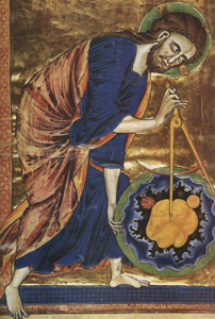
 “In creating the world, God used arithmetic, geometry,
and likewise astronomy.” – Nicholas of Cusa (click here for
article)
“In creating the world, God used arithmetic, geometry,
and likewise astronomy.” – Nicholas of Cusa (click here for
article)
All human affairs rest upon probabilities, and the same thing is true everywhere. ...
But what, without death, would happen to every man, with death must happen
to some man. At the same time, death makes the number of our risks, of
our inferences, finite, and so makes their mean result uncertain. The very
idea of probability and of reasoning rests on the assumption that this
number is indefinitely great. We are thus landed in the same difficulty
as before, and I can see but one solution of it. It seems to me that we
are driven to this, that logicality inexorably requires that our interests
shall not be limited. They must not stop at our own fate, but must embrace
the whole community. This community, again, must not be limited, but must
extend to all races of beings with whom we can come into immediate or mediate
intellectual relation. It must reach, however, vaguely, beyond this geological
epoch, beyond all bounds. He who would not sacrifice his own soul to save
the whole world, is as it seems to me, illogical in all his inferences,
collectively. Logic is rooted in the social principle.
To be logical men should not be selfish; (p. 1338-1339)
Peirce, Charles Sanders. “The Red and the Black” in Newman, James R. ed. The World of Laws and the World of Chance, Simon & Schuster, N.Y. 1956

